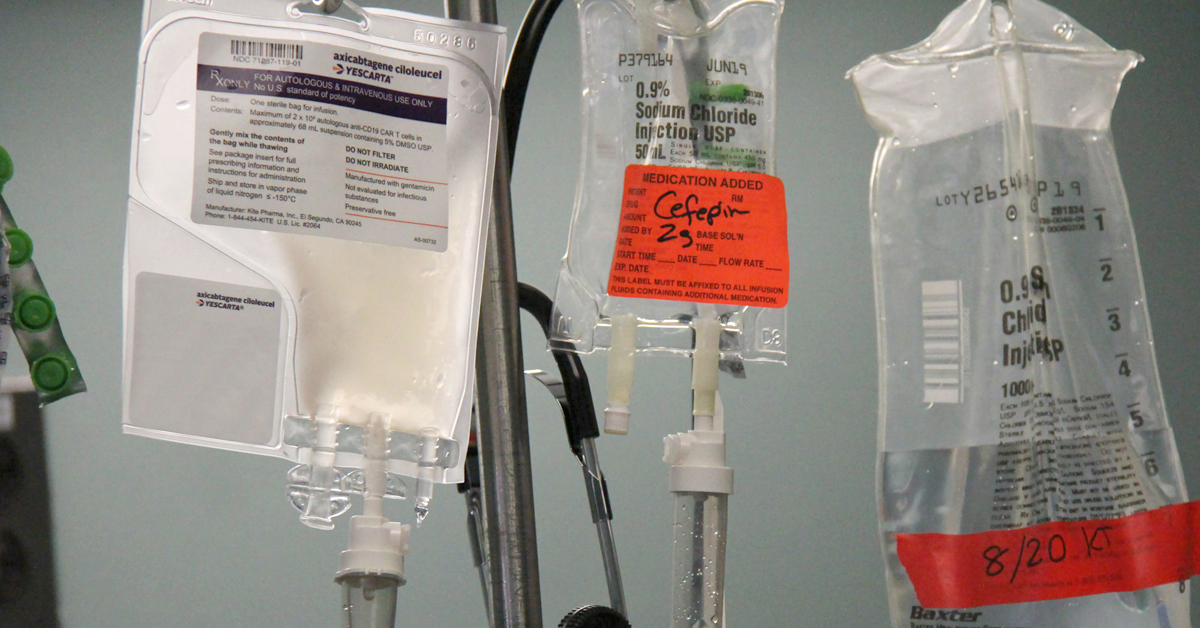In this week’s Innovation Partners BioBlog, we look at how United Health and its pharmacy benefits management arm, OptumRX, are looking to pass rebates to new employer customers to deflect criticism from many fronts. Scott Gottlieb, the FDA Chief, announced he is stepping down, possibly as early as April. Hospitals are struggling to get paid for CAR-T therapy, while new advances in immunotherapy appear to help patients with breast cancer — this and more in the current edition of the Innovation Partners BioBlog.

NCCN Academy for Excellence & Leadership in Oncology
School of Pharmaceutical & Biotech Business
3.20.19 Orlando, FL
Learn about models for successful collaboration in practice management and Health Information Technology
UnitedHealth And OptumRx To Pass Drug Maker Rebates To More Clients
UnitedHealth Group and OptumRx, its pharmacy benefits manager, are expanding a new program that passes along pharmacy discounts they get from drug manufacturer rebates to all new employer customers. The program will be for “all new employer-sponsored plans” and take effect on January 1, 2020. It is the latest effort to pass along savings to customers in the face of marketplace criticism from employers, Congress, and the Trump administration.
Read More
Trump taps Cancer Institute head as acting FDA chief
The Trump administration on Tuesday said National Cancer Institute (NCI) Director Ned Sharpless will serve as acting chief of the Food and Drug Administration (FDA) when current Commissioner Scott Gottlieb steps down. Gottlieb’s announcement took many by surprise last week and raised questions about whether the agency will continue to pursue plans aimed at curbing the use of e-cigarettes among the nation’s youth, one of Gottlieb’s ambitious programs. Gottlieb is expected to step down in April.
Read More
Hospitals are saving lives with CAR-T. Getting paid is another story
CAR-T Therapy offers hope to many patients for whom traditional therapies to treat cancer does not work. The medications, however, can cost hundreds of thousands of dollars. This, along with extended hospital stays, make the treatment expensive. Hospitals are struggling to get reimbursement from insurers to pay for the treatment. The payment delay means that hospitals are struggling to break even on the treatment itself. Medicare, for example, is still determining how to pay for it.
Read More
FDA approves first immunotherapy regimen for breast cancer
The FDA recently approved a treatment for triple-negative breast cancer that is locally advanced or metastatic, that cannot be surgically removed and whose cells include a protein called PD-L1. The approval came after an October study in the New England Journal of Medicine found that the treatment extended progression-free survival or the amount of time in which a patient’s cancer does not get worse. The therapy combines Tecentriq and Abraxane, or immunotherapy and chemotherapy treatments.
Read More
MedPAC weighs bundled payments for post-acute care
Although bundled payments are much in the news and are being explored for many situations, they may not be the best choice for post-acute care. The Medicare Payment Advisory Commissioners (MedPAC) warned that a bundled payment model could lead some providers to cut back on care. The other option, a stay-based option, would not charge a fee for service. Fewer unknowns make the stay-based option more appealing to providers.
Read More
Susan G. Komen ® Announces New Funding Opportunity Focused on Better Understanding of Breast Cancer Disparities
The Susan G. Komen® organization announced a new effort to understand better and address why specific populations of breast cancer patients have different outcomes. For example, African-American women are 40 percent more likely to die from breast cancer than their white counterparts. The effort is funded by a grant from Genentech, a Member of the Roche Group. Komen-funded researchers will apply for supplemental funding to expand existing research projects by adding a disparity lens, with the goal of better understanding and addressing disparities in breast cancer outcomes.
Read More
Precision drugs could unmask cancers to the immune system and boost the effects of immunotherapy
PARP inhibitors are precision drugs that have a previously unknown ability to boost the immune system. These drugs could help more patients benefit from immunotherapy, according to a new study. The study found that PARP inhibitors sparked a powerful immune response when used against cancer cells with weaknesses in repairing their DNA. The results of this study are changing how scientists look at how PARP inhibitors work and are leading to new ideas for immunotherapies.
Read More
Prescription Drugs—List Price, Net Price, and the Rebate Caught in the Middle
PMBs leverage their size to negotiate better prices for drugs. Because Medicare is not permitted to negotiate drug prices directly, the program and beneficiaries rely on PBMs to negotiate on their behalf.US Health and Human Services Secretary Alex Azar proposed to change rules that would effectively eliminate rebates in Medicare Part D and Medicaid managed care programs. Those rules would classify payments from drug manufacturers to PBMs as “kickbacks,” making them illegal under the new proposal. A look at how these changes might impact beneficiaries and others in the complex system of drug rebates and pricing.
Read More
Precision health initiative brings genetic testing to Veterans
The U.S. Department of Veteran Affairs announced a joint initiative between the VA and Sanford to provide free genetic testing to veterans who receive care through the VA. The VA PHarmacogenomics Action for cancer SuRvivorship (PHASeR) testing program will begin a pilot program this year at the Durham VA Health Care System that will enroll all cancer survivors who receive treatment at the facility. The program eventually will expand to recruiting some 250,000 U.S. Veterans at 125 sites. A Dartmouth study found that the VA outperformed private hospitals on most care metrics.
Read More





